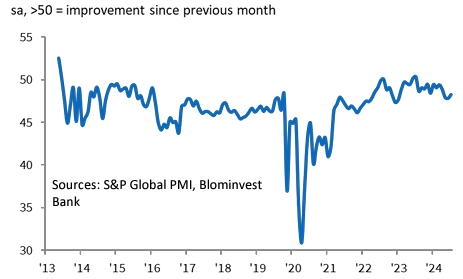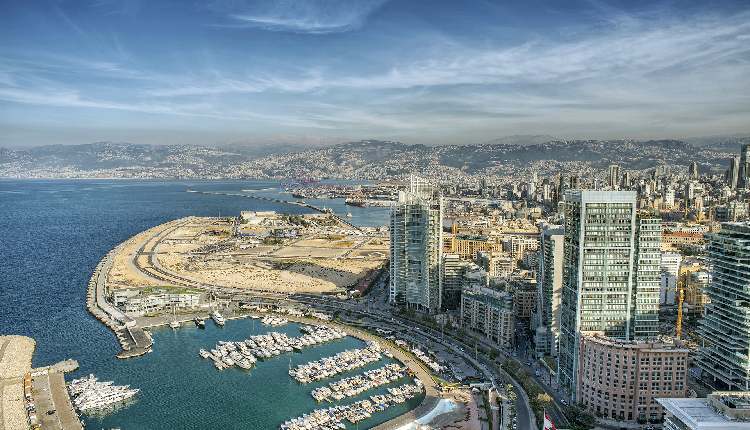Lebanon’s private sector economy saw a slight improvement in July, with the BLOM Lebanon Purchasing Managers’ Index (PMI) rising to 48.3, up from 47.8 in June, the highest in three months. Although this indicates a slower rate of decline, it remains below the neutral 50.0 mark, reflecting ongoing economic contraction.
The PMI, which is a composite index based on five sub-components, showed a mixed performance. New Orders (30 per cent) and Output (25 per cent) fell, but at weaker rates.
Employment (20 per cent) decreased significantly, marking its fastest decline in a year and a half. Supplier Delivery Times (15 per cent) and Stocks of Purchases (10 per cent) saw minor improvements, with only a fractional easing of inflationary pressures.
Ali Bolbol, Chief Economist at BLOM, noted that the index’s increase was due to better performance in output and new orders, alongside a boost from export orders and tourism. However, the private sector remains cautious, with expectations of continued contraction over the next year amid ongoing regional conflict and domestic economic challenges.
Overall, while the PMI’s rise signals a slower decline in operating conditions, significant challenges persist, including modest improvements in business sentiment and inflation.

Attribution: BLOM Lebanon PMI


